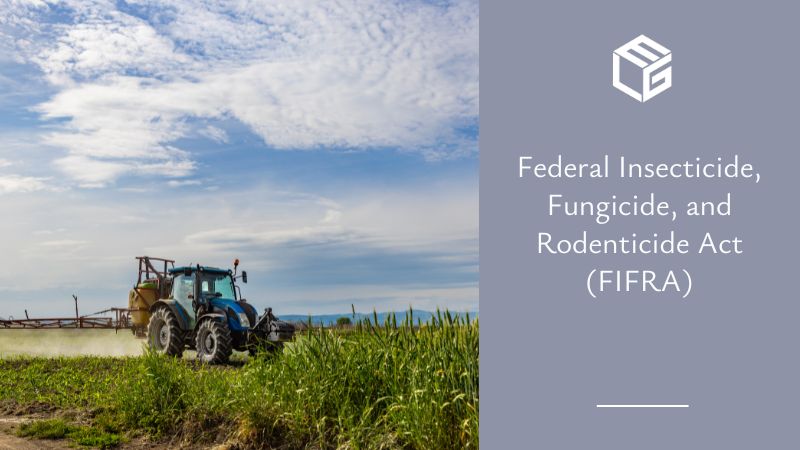The Federal Insecticide, Fungicide, and Rodenticide Act was signed into law in 1988
As the statute governing the registration, distribution, sale, and use of pesticides in the country, the Federal Insecticide, Fungicide, and Rodenticide Act (FIFRA) defines pesticides as any substance or mixture of substances intended for preventing, repelling, mitigating, or destroying any pest, or intended for use as a plant regulator, desiccant, or defoliant, or any nitrogen stabilizer. Under this act, Federal Facilities are required to:
- sell or distribute pesticides only as established in FIFRA
- adequately follow pesticide labeling instructions
- use pesticides under an experimental use permit consistent with the provisions of the permit
- make sure that applicators are properly trained and, wherever necessary, certified to use restricted-use pesticides
- properly manage pesticide storage facilities
- dispose of pesticide residues and waste according to the required procedures
- maintain records of applications of restricted-use pesticides, except when applied by a certified applicator
- at facilities where pesticides are manufactured, sold, or distributed, allow entry, copying of records or sampling authorized by FIFRA
The enforcement of FIFRA focuses mostly on the sale, distribution, and use of pesticides. Before a pesticide is sold or distributed, it must be registered with the U.S. Environmental Protection Agency (EPA). Furthermore, before the agency may register a pesticide under FIFRA, the applicant must show that using the pesticide according to the specifications “will not generally cause unreasonable adverse effects on the environment.” FIFRA defines this term to mean the following:
- any unreasonable risk to humans or the environment, considering the economic, social, and environmental costs and benefits of the use of any pesticide
- any human dietary risk from residues that stems from the use of a pesticide on any food inconsistent with the standard under section 408 of the Federal Food, Drug, and Cosmetic Act
On August 2, 2021, the EPA released the interim decision for paraquat, finalizing new safety measures to reduce toxic exposure. Paraquat is a restricted-use product and can only be sprayed on crops by certified pesticide applicators. The agency has taken steps to ensure the herbicide is used in a manner that will not cause unreasonable adverse effects on human health or the environment and is consistent with the label directions. More specifically, the EPA determined that the following mitigation measures are necessary to address the paraquat exposure risks while allowing the use of the herbicide:
- limiting aerial applications and requiring residential buffers
- forbidding pressurized handgun and backpack sprayer applications
- requiring enclosed cabs or respirators for groundboom applications
- increasing the Restricted Entry Interval for several crops
After reviewing the medical literature, the EPA claimed it did not find evidence to support the association between paraquat exposure and Parkinson’s disease. However, there are numerous studies that have found a significant connection between the two. If you worked with paraquat or were exposed to it by living near a farm where the herbicide was applied and now struggle with Parkinson’s disease, you should contact our attorneys, who specialize in toxic exposure. You might be eligible to file a claim and obtain financial compensation from the liable paraquat manufacturers.
Our resourceful attorneys can help you file a paraquat exposure claim
For over 30 years, we have been dedicating our efforts to assisting toxic exposure victims. If you were exposed to paraquat and have a diagnosis of Parkinson’s disease, we strongly encourage you to contact our skilled attorneys, as they specialize in toxic exposure. To initiate the legal process, you only have to send in evidence of your paraquat exposure and your medical records stating your diagnosis. After a careful review, we will determine whether you are eligible to file a paraquat exposure claim.
If we deem you eligible, our attorneys will promptly begin working on your claim. People who are too ill to participate in the legal process can have a family member help them navigate it. Moreover, our compassionate legal team will strive to make the process as easy as possible for you by taking care of the most complex aspects of it on your behalf. This way, your involvement will be minimal, and you will be able to continue focusing on your health and treatment. It is important to know that we work on a contingency fee basis.
